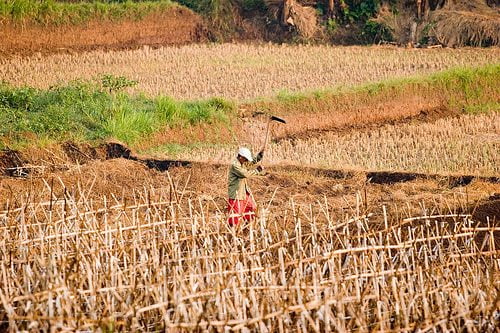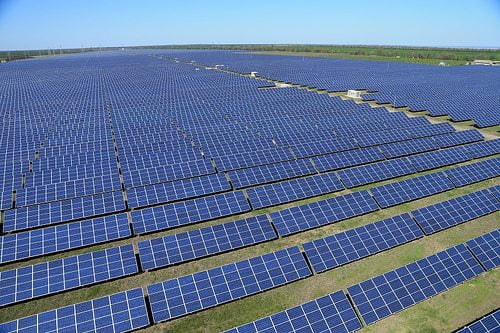

Economy
Jeremy Grantham on investing, resource scarcity and climate change
Ben Goldsmith, head of sales and marketing and a partner at WHEB, speaks to Jeremy Grantham, the chief investment strategist at GMO, about resource scarcity and climate change and the implications for investors.
Ben Goldsmith (BG): Jeremy, you have said in the past how focusing on data related to resource use can clearly show what problems we are up against. For those who still think that climate change and resource scarcity are some sort of conspiracy dreamed up by environmentalists, what would you say?
Jeremy Grantham (JG): Our approach has always been to interrogate the data, and it is data that drove me to the problem of resource shortages. My team specialises in spotting bubbles in asset classes and we had an infamous exhibit called ‘all bubbles break’ – all the important bubbles we could find had broken and we had had a similar view of oil. It took me, I’m ashamed to say, two years to realise that oil was probably not an example of a bubble breaking back to a pre-existing trend, and instead was the first paradigm shift that I’d ever come across out of the literally thousands that we’d looked at.
BG: But is it only oil? Or is there a wider pattern emerging?
JG: Well, being rather slow on the uptake, it took me another two years to gestate the question why oil would be the only finite resource to respond to the pressure it was meeting. As we studied the data, we realised that of course it was not, and that the world had begun to change pretty dramatically around the year 2000. We came out with a big report, which has been my one and only scoop, and showed that we were clearly entering a new era of scarce resources and rising prices. The commodity price declines that we had seen for 100 years had been incredibly helpful in creating wealth at about 1.2% a year or a total of 70% from 1900 to 2000, but then from 2002 to 2008 it gave the 100 years back and we were back to where we had been in 1900.
Why was this? There was no world war three, there was no fight with Saudi Arabia and yet it was a bigger move than what happened during the second world war. So that was really an amazing story. Commodity prices had tripled and oil had quadrupled without any fuss, without anyone really screaming about it. People focus so much on housing and finance that they were missing one of the great commodity moves of all time. Perhaps it is the single most important event since the industrial revolution because we really are beginning to run out of resources and if we live in a world where prices slowly rise, there will be a very critical shift in the economic environment, one that will cause a substantial slow-down in economic growth.
 Early action is important in dealing with a lot of resource scarcity issues, but the area where time really isn’t on our side is in dealing with carbon emissions and climate change. We have got to somehow rise to the occasion on carbon emissions, even at a time when the pain from climate change is not immediately obvious. That’s the real problem. We are slowly being warmed in the pan and we can’t find the incentives to react yet. Meanwhile the damage is accumulating and, as you probably know, there is no confidence from scientists that limiting warming to two degrees will save our bacon. Two degrees may turn out to be irreversibly bad and there are many more people who think that today than 10 years ago.
Early action is important in dealing with a lot of resource scarcity issues, but the area where time really isn’t on our side is in dealing with carbon emissions and climate change. We have got to somehow rise to the occasion on carbon emissions, even at a time when the pain from climate change is not immediately obvious. That’s the real problem. We are slowly being warmed in the pan and we can’t find the incentives to react yet. Meanwhile the damage is accumulating and, as you probably know, there is no confidence from scientists that limiting warming to two degrees will save our bacon. Two degrees may turn out to be irreversibly bad and there are many more people who think that today than 10 years ago.
BG: Not forgetting climate change’s ugly twin sister, ocean acidification, which nobody really talks about!
JG: Thank you – yes. It’s unarguable that rising carbon dioxide emissions are making the oceans become more acidic, in turn threatening life in the oceans and the more than one billion people who are directly dependent on the oceans for their livelihoods.
BG: So where are we likely to see the impacts of rising resource scarcity?
JG: Well, we are already seeing some of these impacts, and one region that is particularly vulnerable in my view is North Africa and indeed much of the Mediterranean circle. This region is particularly wheat dependant. So, in Egypt for example, you go and buy your wheat and take it home and it has USA printed on the sack and when the price triples, which it did, the country has to pay triple. Wheat is often subsidised for the individual but, in the end, Egyptian society has to pay the difference and Egypt’s oil has peaked and the reserves are not there to pay for these resources.
Meanwhile the population is still going through the roof. It has gone from 3 million in Napoleon’s time to 80 million today with forecasts of a further 60 million to come. Egypt is already very productive and so can’t easily increase its output, so who’s going to buy the food for the next 60 million people? My concern – and we are perhaps already seeing this – is that this sort of things destabilises society, and around the Mediterranean rim, you’re going to find country after country, unless they’re lucky, becoming dangerously destabilised.
BG: Ok, that is all pretty stark, but is it all doom and gloom?
JG: Well actually population and the global birth rate is one area of good news. It was actually in 1961 that the global birth rate peaked at 2.1% per annum and since then it has been in decline. A decline that has been literally transcendental – the only word I can think of that adequately describes the change. In Iran in 1961, the average woman had seven children; now it is 1.6. Even in a dirt poor country like Bangladesh, the average has gone from seven to 2.2 – just a tiny bit above replacement level.
Country after country is coming down – the whole of Asia is way below replacement. The whole of Europe is way below replacement and, in the very last numbers, the US just dropped to 1.9. So this was utterly unexpected. A complete godsend in my opinion and with luck and some encouragement we could stabilise the global population at 8 billion and then have it drift down from there.
BG: Where else can we see really positive trends?
JG: One area is in renewable energy, particularly solar. The progress in renewables is so much faster than the typical, reasonably well-informed businessman realises. The price of solar panels is now just a quarter of what it was just three years ago. Solar is on the cusp of literally changing the whole utility industry. In California, 97% of new energy infrastructure that is expected to be built in the second half of 2013 is going to be solar, with the remaining 3% in biomass. In Europe, 70% of new energy infrastructure is renewable energy and in China it is over half.
 BG: So the good guys – as far as renewables goes – are winning. Are investors in renewables leading the charge?
BG: So the good guys – as far as renewables goes – are winning. Are investors in renewables leading the charge?
JG: Don’t get too carried away! England has an attitude that is notoriously dopey on these issues and is still influenced by the ‘bad guys’ that to a degree is only seen in the US, and investors are not really moving as fast as the science and engineering. Really, they are just following along and it’s down to the brilliant leadership of places like Germany and California. It isn’t being driven by eager minded, capitalists, to be fair. It will eventually be driven by the market. As the numbers keep ticking through, capitalism will fully engage and the attitudes in England and America, particularly in America, will be swept away.
BG: What would you say needs to change to get investors to play a more constructive role here? Is it back to having a longer term investment horizon?
JG: I am not sure I have anything particularly profound or original to say on this. I would do away with quarterly reports, and the short-term measurement periods for managers. You need to be very careful about incentive payments and make sure that they’re symmetrical. It’s all quite obvious how you’d make improvement. If we had to depend on the leadership of the investment management industry, it would be very slow. I think if we make it through this, it will be because the technology will move fast enough and the venture capitalists and some capitalists will move fast enough and it will be down to these asset managers. For the clients, it will become increasingly obvious that it’s a done deal. They won’t have to be heroes and they won’t have to use their brain. Things will just fall into shape.
The question at the end of the day is if we’ve been very lucky or slightly lucky and scraped by, in what condition will we have left the planet and what are the interactive effects of a warmer destabilised climate on the critical issue of food production? Even this in my lucky outcome, that is not knowable; it is not knowable how bad the weather will get; it is not knowable how adaptable ecosystems will be. They’ve had 10,000 years of very stable weather; they are designed for a world which is beginning to go out of business. The degrees of uncertainty are so great on climate change and that is what makes it so dangerous.
Ben Goldsmith is head of sales and marketing and a partner at WHEB; Jeremy Grantham is the chief investment strategist at GMO. This article originally appeared on WHEB’s blog.
Further reading:
From ethics to sustainability: shifting the investment debate for 2014
The sustainable investment tipping point is now
Not over the long-term? Unsustainable investment’s ‘black swan’ moment


 Environment12 months ago
Environment12 months agoAre Polymer Banknotes: an Eco-Friendly Trend or a Groundswell?

 Features11 months ago
Features11 months agoEco-Friendly Cryptocurrencies: Sustainable Investment Choices

 Features12 months ago
Features12 months agoEco-Friendly Crypto Traders Must Find the Right Exchange

 Energy11 months ago
Energy11 months agoThe Growing Role of Solar Panels in Ireland’s Energy Future





























